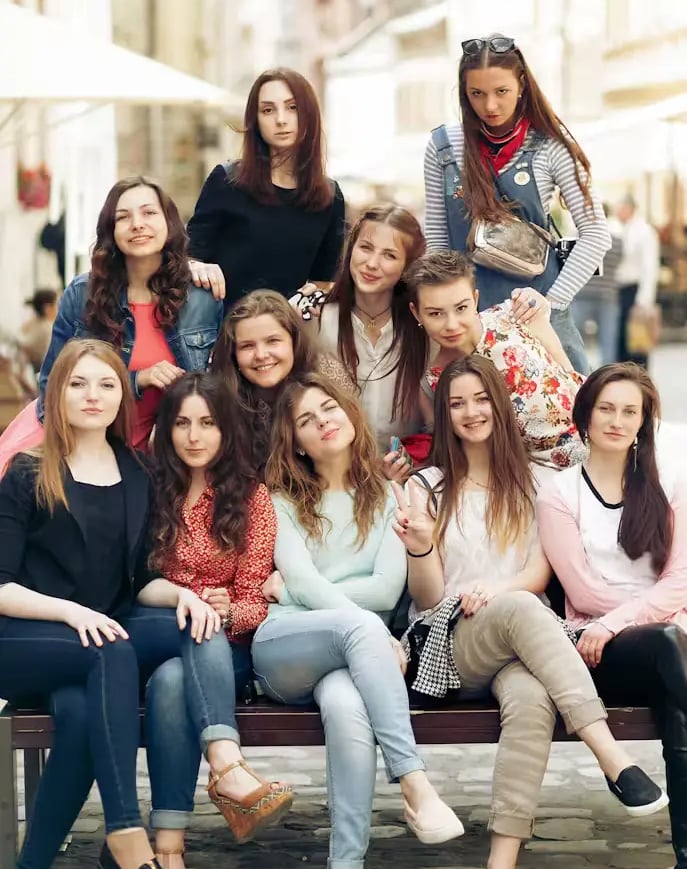Social Media Influencers Impact on Society
Social media influencers have undeniably transformed society, from how we shop and socialize to how we view ourselves and the world.
SOCIAL MEDIA
9/30/20256 min read


In today’s digital age, social media influencers have become a powerful force shaping how people think, act, and connect. From fashion and fitness to travel and technology, influencers dominate platforms like Instagram, TikTok, YouTube, and X, reaching millions with a single post. Their ability to sway opinions, drive trends, and even impact mental health has sparked both admiration and concern. As someone who has spent years observing the rise of social media culture, I’ve seen firsthand how influencers can inspire positive change but also create challenges for society. This article explores the multifaceted impact of social media influencers, diving into their role in shaping culture, consumer behavior, mental health, and more, while offering a balanced perspective on their influence in the modern world.
The Rise of the Influencer Phenomenon
Social media influencers didn’t appear overnight. Their rise began in the early 2000s when platforms like MySpace and early YouTube gave regular people a chance to share their lives online. By the 2010s, Instagram and other visually driven platforms made it easier for charismatic individuals to build massive followings. Today, influencers range from mega-celebrities with millions of followers to micro-influencers with niche audiences of a few thousand. What sets them apart is their ability to connect with people on a personal level, often feeling like a friend rather than a distant celebrity. Unlike traditional media stars, influencers thrive on authenticity, sharing glimpses of their daily lives, opinions, and expertise to engage their audience.
This connection has transformed how we consume information. For example, a beauty influencer demonstrating a new skincare routine on TikTok can convince thousands to try a product in a way a TV ad never could. Their content feels relatable, and their recommendations carry weight because followers trust their judgment. According to a 2023 study by the Pew Research Center, nearly 60% of U.S. adults under 30 have purchased a product based on an influencer’s recommendation. This shift shows how influencers have become trusted voices in a world where traditional advertising often feels impersonal or staged. However, their growing power also raises questions about responsibility, as their influence extends far beyond product reviews.
Shaping Consumer Behavior and Trends
One of the most significant ways influencers impact society is through consumer behavior. Brands have taken notice, pouring billions into influencer marketing. In 2024, the global influencer marketing industry was valued at over $21 billion, according to Statista, a clear sign of its effectiveness. Influencers don’t just sell products; they create demand for lifestyles. A travel influencer showcasing a luxurious resort in Bali can spark wanderlust, while a fitness influencer promoting a new workout app can inspire thousands to prioritize health. Their ability to set trends is unmatched, as they tap into what their audience wants and make it feel attainable.
This power to shape trends goes beyond products. Influencers often dictate fashion, beauty standards, and even social norms. For instance, the rise of “clean eating” trends in the mid-2010s was fueled by wellness influencers sharing smoothie recipes and meal plans. Similarly, the body positivity movement gained traction through influencers advocating for self-love and diverse representations of beauty. These trends can have positive effects, encouraging healthier habits or more inclusive attitudes. But there’s a flip side. Some influencers promote unrealistic lifestyles, showcasing curated feeds that make everyday life seem flawless. This can create pressure for followers to spend beyond their means or chase unattainable ideals, which leads to the next critical point: mental health.
The Impact on Mental Health
While influencers can inspire, they can also unintentionally harm their audience’s mental well-being. Social media platforms are designed to keep users scrolling, and influencers’ polished content often feeds into comparison culture. As someone who has spoken with young adults about their social media habits, I’ve heard countless stories of people feeling inadequate after seeing influencers’ perfect homes, bodies, or vacations. A 2022 study from the American Psychological Association found that excessive social media use, particularly among teens, is linked to increased anxiety and lower self-esteem. Influencers, with their carefully curated lives, can amplify these feelings, even if they don’t mean to.
For example, fitness influencers often share “before and after” photos to showcase transformations. While these posts aim to motivate, they can make viewers feel like they’re falling short if they don’t achieve similar results. Similarly, lifestyle influencers who post about designer clothes or exotic trips can create a sense of inadequacy among followers who can’t afford the same. The pressure to keep up can lead to stress, financial strain, or even unhealthy behaviors, like extreme dieting or over-exercising. On the other hand, some influencers are tackling this issue head-on. Mental health advocates on platforms like Instagram and X share raw, honest content about their struggles, helping to normalize conversations about anxiety, depression, and self-care. These voices are vital in balancing the narrative and showing that life isn’t always picture-perfect.
Influencers as Cultural and Social Catalysts
Beyond consumer trends and mental health, influencers play a significant role in shaping culture and social movements. They have the power to amplify important issues and drive change. For instance, during the 2020 Black Lives Matter protests, many influencers used their platforms to educate followers about systemic racism, share resources, and encourage activism. Similarly, environmental influencers have raised awareness about climate change, promoting sustainable practices like zero-waste living or ethical fashion. These efforts show how influencers can use their reach for good, mobilizing millions to support causes that matter.
However, this influence comes with responsibility. Misinformation is a growing concern, as some influencers share unverified advice, especially in areas like health and wellness. In 2021, the World Health Organization flagged the spread of false health claims on social media, noting that influencers sometimes promote unproven remedies or diets without scientific backing. This can have serious consequences, like when followers adopt harmful practices or skip medical advice in favor of an influencer’s tips. To combat this, platforms like YouTube and Instagram have started flagging misleading content, but the responsibility ultimately lies with influencers to fact-check and be transparent about their expertise or lack thereof.
The Economic and Career Implications
The rise of influencers has also reshaped the job market. Being an influencer is now a viable career path, with some earning six- or seven-figure incomes through sponsorships, ad revenue, and merchandise. This shift has opened doors for creative individuals who might not have thrived in traditional careers. For example, a stay-at-home parent with a knack for photography can become a micro-influencer, monetizing their passion for home decor. Platforms like Patreon and Substack also allow influencers to earn directly from their audience, creating new opportunities for financial independence.
Yet, the influencer economy isn’t without challenges. The industry is highly competitive, and success often depends on algorithms, trends, and luck. Many influencers work long hours creating content, responding to followers, and negotiating brand deals, all while facing the pressure to stay relevant. Burnout is common, as is the instability of relying on platforms that can change their rules or algorithms overnight. For every influencer earning millions, thousands more struggle to make a living wage. This reality highlights the need for aspiring influencers to approach the career with a clear strategy and realistic expectations.
The Future of Influencer Culture
Looking ahead, the role of influencers in society is likely to evolve as technology and consumer habits change. Emerging platforms, like those focused on virtual reality or AI-driven content, could give influencers new ways to engage audiences. At the same time, growing awareness of social media’s impact may push influencers to prioritize authenticity and transparency. Regulations are also tightening, with agencies like the Federal Trade Commission requiring clear disclosures for sponsored content. This shift could make the industry more trustworthy, as followers demand honesty from the voices they follow.
The rise of niche influencers those focusing on specific topics like sustainable gardening or mental health advocacy suggests a move toward more meaningful content. As audiences grow savvier, they’re likely to gravitate toward influencers who offer real value, whether through education, entertainment, or inspiration. For society, this could mean a shift away from superficial trends and toward content that fosters connection and growth. However, the challenge will be balancing commercial interests with genuine impact, as brands and influencers navigate an increasingly crowded digital space.
Conclusion
Social media influencers have undeniably transformed society, from how we shop and socialize to how we view ourselves and the world. Their ability to connect with audiences on a personal level has made them powerful voices in shaping culture, trends, and even social movements. Yet, their influence comes with challenges, including the pressure to maintain authenticity, the risk of spreading misinformation, and the impact on mental health. As someone who has watched this phenomenon grow, I believe influencers have the potential to do immense good if they wield their power responsibly. By prioritizing transparency, fostering meaningful conversations, and staying true to their values, influencers can continue to inspire and uplift society in the years to come. For now, their impact is a reminder of the digital age’s power to amplify voices, for better or for worse.


Connect
Join our vibrant community of empowered women.
Share
contact@socialmediagirlsforum.co
+447553810589
© 2025. All rights reserved.